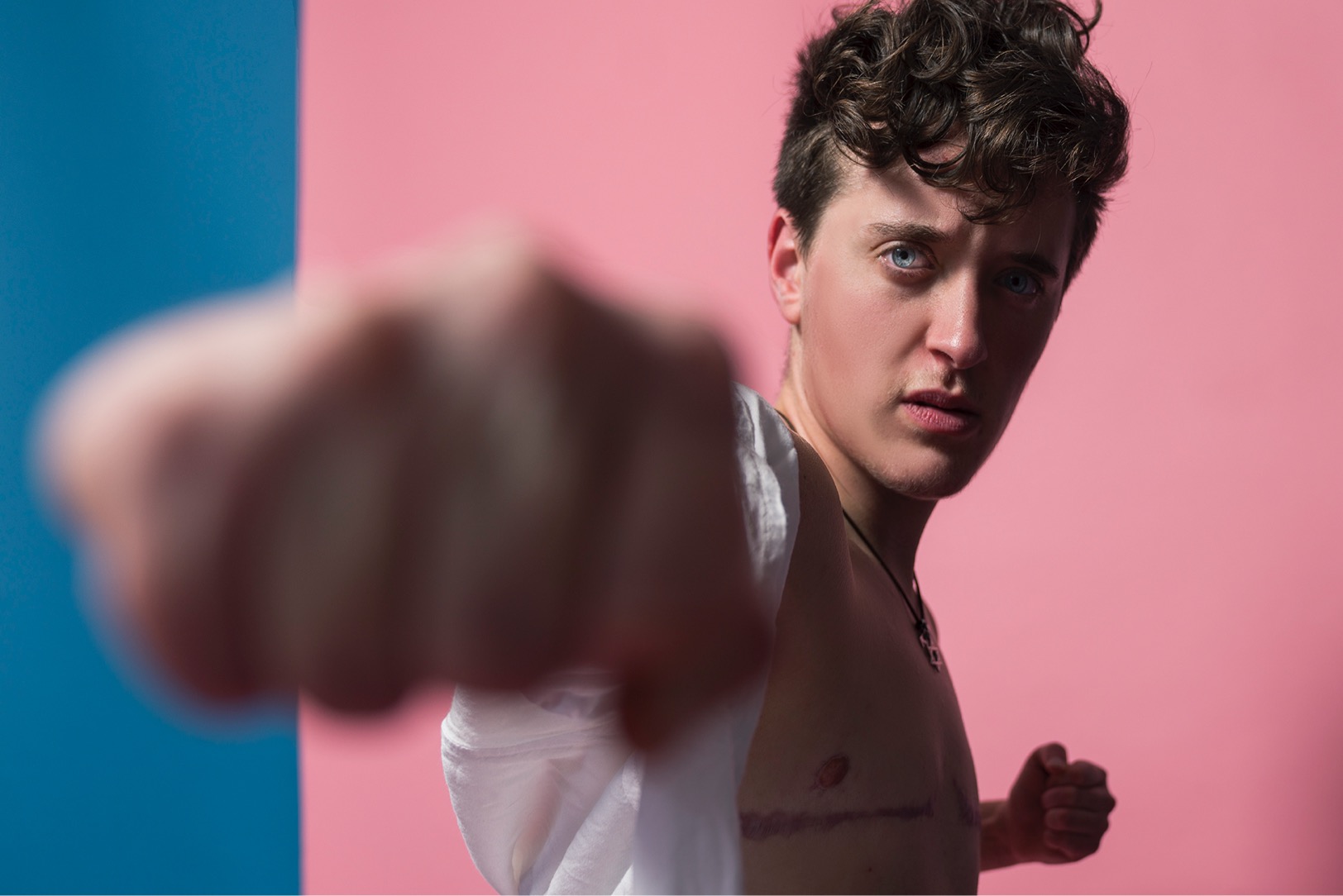Lex Horwitz ’19 leads virtual programming series with athletic community
April 2, 2021
 Courtesy of Luisa Madrid
Courtesy of Luisa MadridIn a three-part virtual programming series, Lex Horwitz ’19, a queer, non-binary transmasculine LGBTQ+ educator and activist, and a former member of the Bowdoin men’s squash team, has returned to Bowdoin to share their knowledge and experiences with the Bowdoin athletic community, providing insight into how to cultivate a more inclusive and supportive environment for all.
“We channeled a lot of our [Diversity, Equity and Inclusion (DEI)] efforts into race education in the first semester, and our goal moving into the second semester was to broaden that umbrella and start looking at some wider-ranging topics … one of the topics that we talked about is the LGBTQ+ community and how we can start talking about those experiences,” Katie Greene, assistant athletic director and diversity, equity and inclusion coordinator, said in a Zoom interview with the Orient.
Greene emphasized that Horwitz’s familiarity with Bowdoin made their contributions especially valuable for the community.
“What I really enjoyed about [Horwitz’s series] is that it really related [LGBTQ+ topics and issues] to Bowdoin specifically, as opposed to just this broader topic that maybe you don’t focus on if it’s not right here in front of you,” Greene said.
The third and final session of Horwitz’s series, titled “Lex’s Journey and Q and A,” was held on March 30.
Horwitz’s first two talks, “What’s Gender?” and “Let’s Talk about Sexuality,” introduced listeners to the terminology and tools necessary for understanding the distinction between gender and sexuality.
“There are so many spaces [that] actively—both directly and indirectly—uphold cisnormativity and heteronormativity … and it’s also a really strong, prevalent factor in athletics,” Horwitz said in a Zoom interview with the Orient. “I felt very comfortable being in those spaces to say, ‘Hey, we need to start to think critically.’”
Henry Somerby ’23, a member of the men’s squash team, said he found Horwitz’s first two talks to be a helpful way to engage in conversation around queer and trans topics.
“I think that [Horwitz] has a really nice way of kind of starting with the basics,” Somerby said in a Zoom interview with the Orient. “The first talk was definitely more about the terminology to use for people who didn’t necessarily know or weren’t engaging in conversations in the past, [so] that they had the vocabulary to be able to talk about that.”
Somerby found Horwitz’s final session to be particularly helpful in terms of providing tangible steps for teams to create a more inclusive environment for athletes of all identities and experiences.
Horwitz, who joined the women’s squash team when they arrived at Bowdoin, has a unique understanding of the power of language.
“Every single day, hearing gendered language and association to myself for a gender that I was not a part of really started to chip away [at my mental health] in a really disheartening way, and took away from my experience as an athlete,” Horwitz said.
After doing their own research on the options available to trans athletes, Horwitz worked with Ashmead White Director of Athletics Tim Ryan to join the men’s squash team, which most aligned with their gender identity.
Horwitz also worked with Ryan to create signage in the squash facilities which mark the building as safe spaces for all gender identities. Although a simple step, Horwitz argued that gender-inclusive and expansive signage can go a long way to creating an inclusive and safe environment.
Returning to Bowdoin to give educational talks, albeit virtually, has presented Horwitz with the added opportunity to process and heal from some of their experiences as a Bowdoin student.
“I still was battling with what [it means] to love a place that has caused me harm,” Horwitz said. “What I didn’t know at the time—but am beyond grateful to report now—is that, through producing the series that I gave at Bowdoin this year, I was able to start to conscious process and work through a lot of the experiences that I had at Bowdoin and to be able to really start to heal.”
Through sharing their story and providing tangible, progressive steps, Horwitz hopes to help Bowdoin Athletics and the Bowdoin community at large begin thinking critically about how to better cultivate an affirming and inclusive community for all individuals.
“Visibility changes everything. If you are in an environment where people can openly talk about identities and not only openly talk, but feel supported and affirmed, it’s going to change people’s lives,” Horwitz said. “My goal has always been to just create these conversations to be able to cultivate safe and judgment free environments where people feel comfortable asking questions.”

Comments
Before submitting a comment, please review our comment policy. Some key points from the policy: